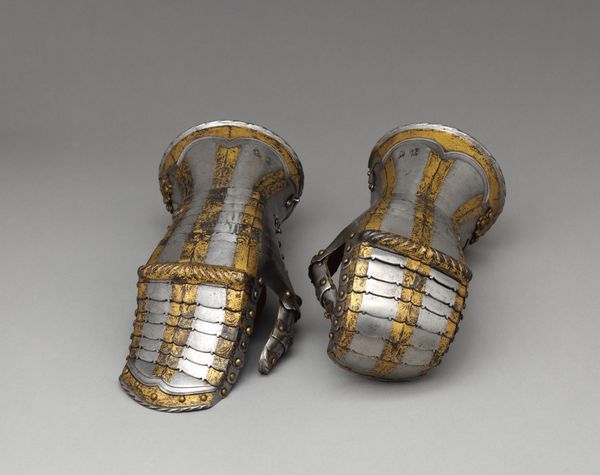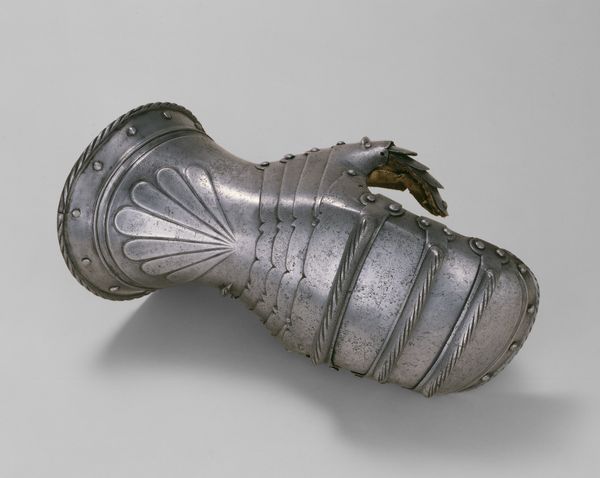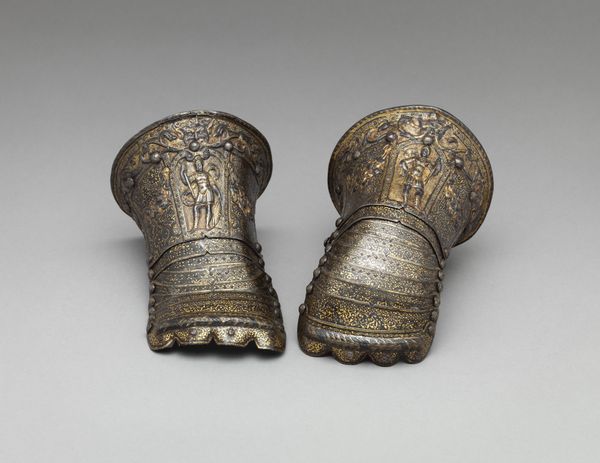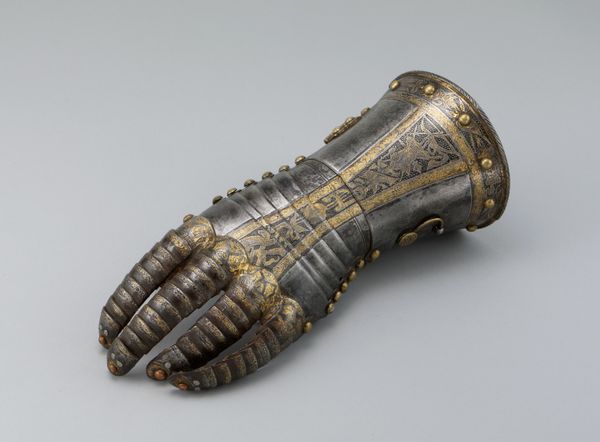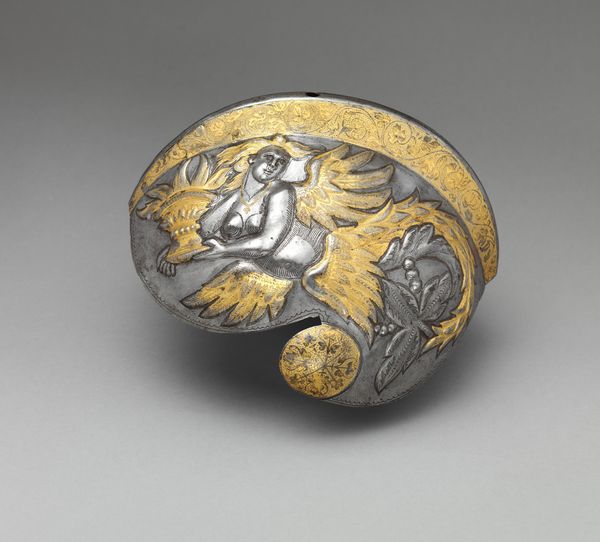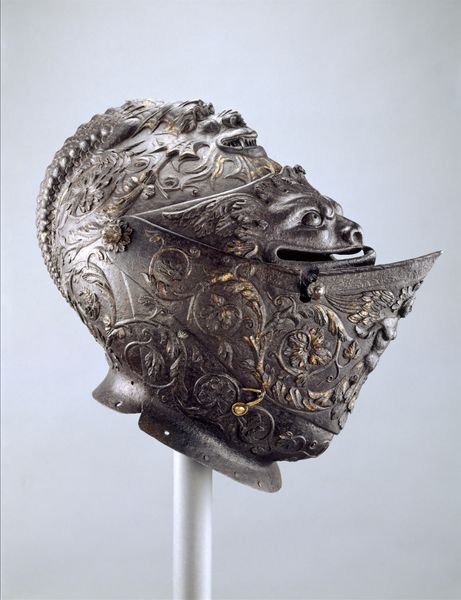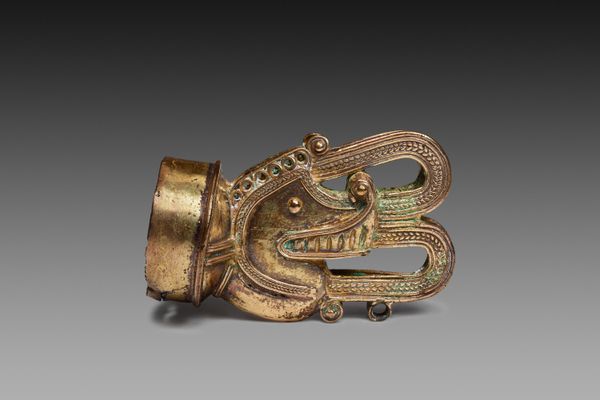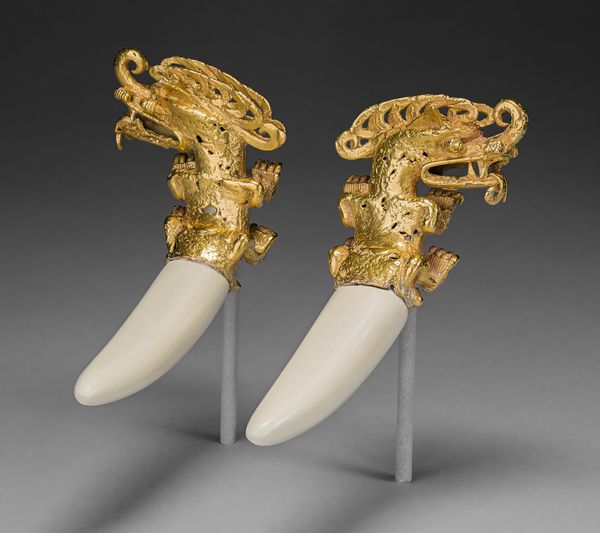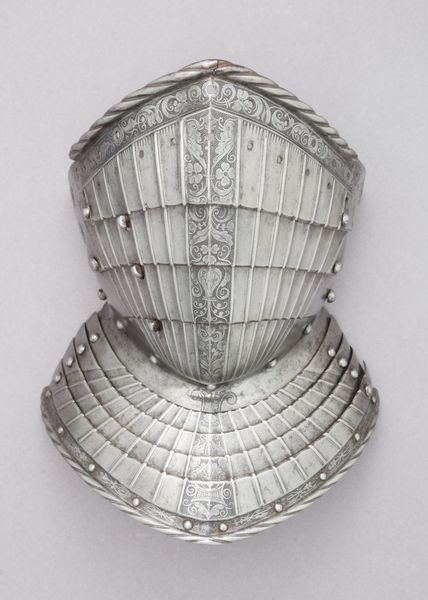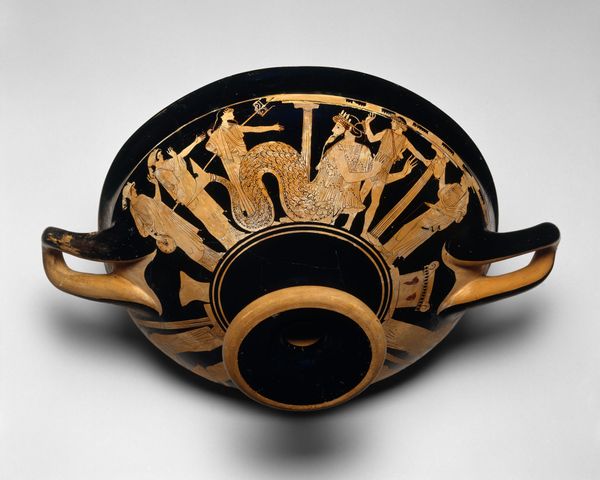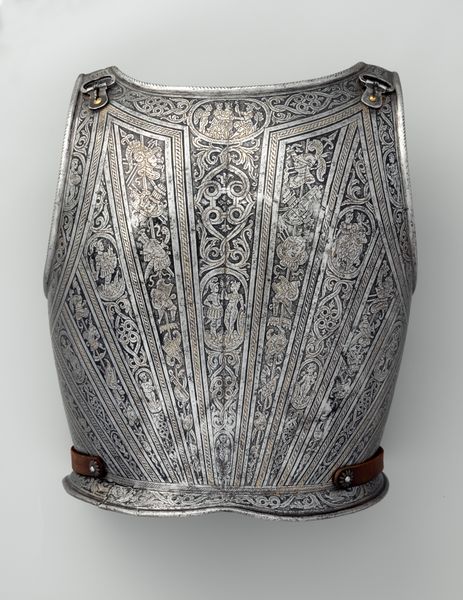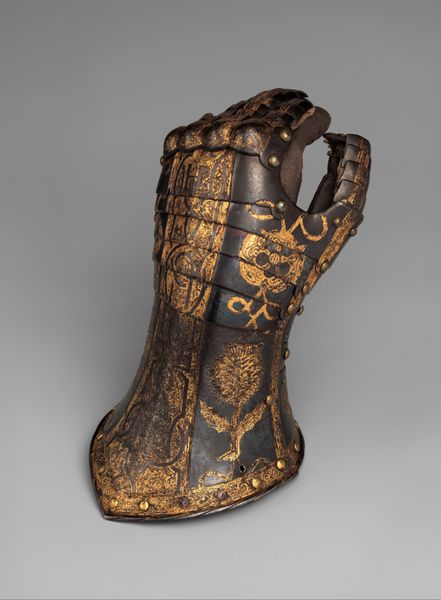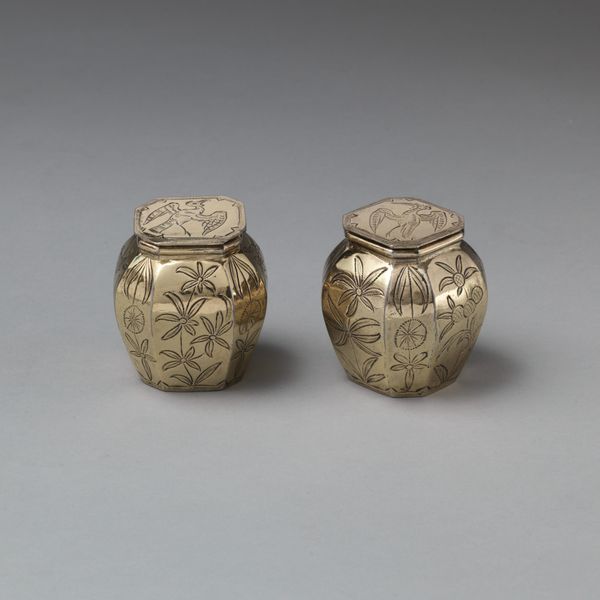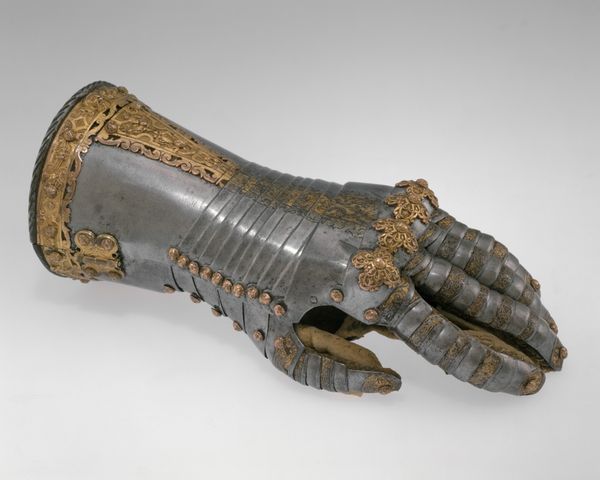
Pair of Gauntlets from a Garniture of Armor of Philip II of Spain (reigned 1556–98) 1546
0:00
0:00
metal, sculpture
#
medieval
#
germany
#
metal
#
sculpture
#
armor
Dimensions: Gauntlet (a); H. 10 in. (25.5 cm); W. 4 3/4 in. (12 cm); D. 5 in. (12.7 cm); Wt. 1 lb. 1 oz. (475 g); gauntlet (b); H. 10 in. (25.5 cm); W. 4 3/4 in. (12 cm); D. 5 in. (12.7 cm); Wt. 16 oz. (439 g)
Copyright: Public Domain
These gauntlets were made by Desiderius Helmschmid in the 16th century, part of a suit of armor for Philip II of Spain. They are constructed primarily of steel, with lavish gold detailing. Consider the immense labor involved. Each plate was individually shaped, likely through hammering, and then meticulously joined together allowing flexibility. The surface decoration demanded even more skill. The etched patterns, inlaid with gold, speak to the wealth and power of the patron, but also to the expertise of the maker. Armor wasn't just protection; it was a statement. This wasn't Cold War technology, it was warm technology to present a status, reflecting a rigid social hierarchy. By examining the material and processes, we begin to understand the gauntlets as more than mere objects, but rather as complex artifacts embedded in histories of craft, technology, and social display.
Comments
No comments
Be the first to comment and join the conversation on the ultimate creative platform.
